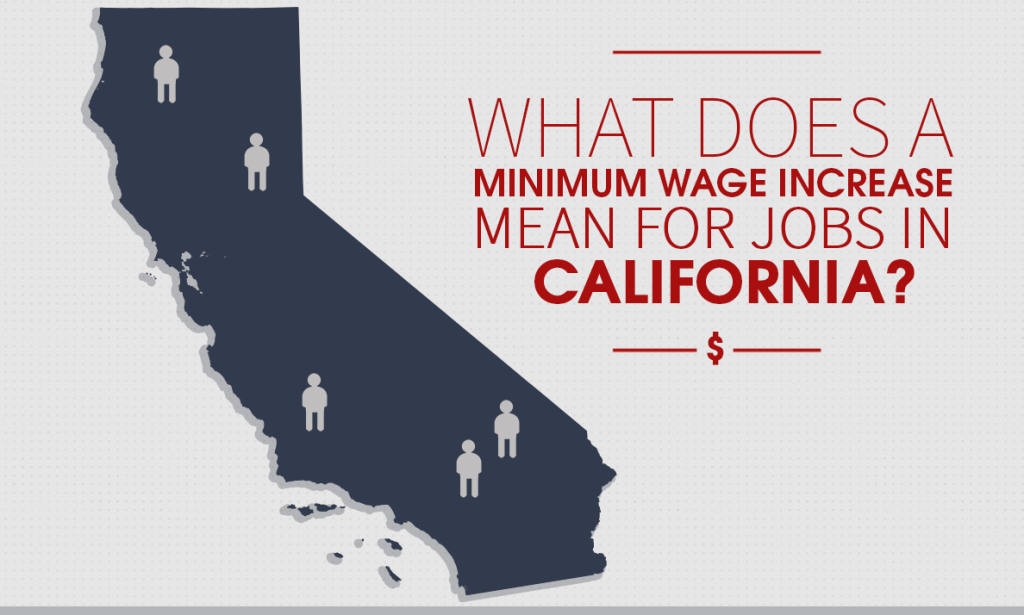Insight
March 29, 2016
The Job Implications of California’s $15 Minimum Wage Law

California state lawmakers have reached a deal to raise the state’s minimum wage from $10 to $15 per hour. Labor advocates and progressive policymakers have lauded this proposal as a major achievement in efforts to improve the welfare of low-wage workers. American Action Forum (AAF) research has consistently shown, however, that proposals to raise the minimum wage often hurt those they intend to help by increasing joblessness among low-skilled workers and failing to deliver income gains to those who are actually in poverty. So, what would happen in California? This massive minimum wage increase could cost the state almost 700,000 jobs.
Under the new law, the state’s minimum wage would gradually increase and reach $15 by 2022 for most workers. Businesses with fewer than 25 workers would have until 2023 to pay at least the new minimum wage. Going forward, the minimum wage in future years would increase with inflation. This comes after the state finished implementing its new $10 minimum wage at the beginning of the year. It also comes after several large cities in California began implementing their own large minimum wage increases.
While proposals to raise the minimum wage are well intended, it is important to take into account the negative labor market consequences. Recently, Meer & West (2015) found that raising the minimum wage reduces job creation. Specifically, they found that a 10 percent increase in the real minimum wage is associated with a 0.3 to 0.5 percentage-point decrease in the net job growth rate. As a result, three years later employment becomes 0.7 percent lower than it would have been absent the minimum wage increase.
This may not sound very problematic, but the $15 minimum wage proposal embraced by lawmakers in California constitutes a 50 percent increase from state’s current $10 minimum wage. This means that if the minimum wage were to be $15 in 2023, by 2026 employment would be 3.5 percent lower than it would be if the minimum wage did not increase. Using California Employment Development Department projections as a baseline, this translates to a loss of 692,235 jobs.
Raising the minimum wage may sound appealing, but it is important to understand that it does have a cost. Unfortunately, the low-wage, low-skill workers who labor advocates want to help are the very workers who tend bear this cost, as thousands would be unable to maintain their current job or attain a new one. Moreover, the evidence is right in front of us: in 2015 cities that began implementing minimum wage increases experienced a substantial decline in restaurant employment growth. There is no reason to think that the labor market implications will be any different in California, as the most populous state in the nation races to have the highest minimum wage.










